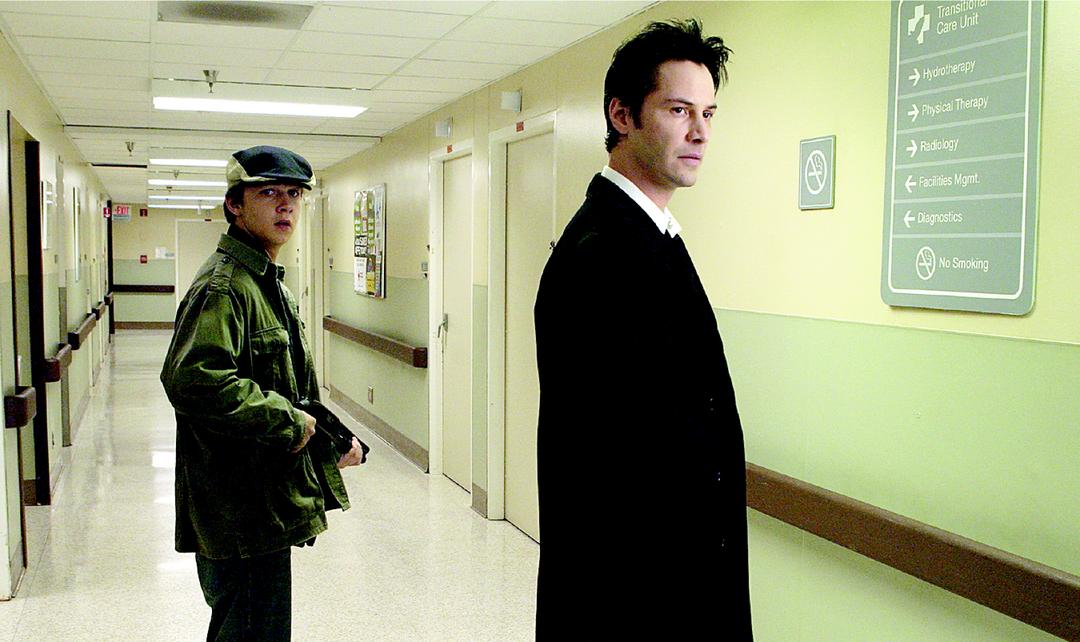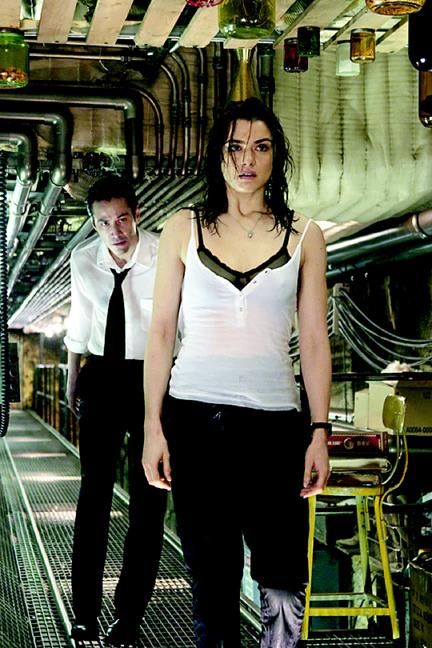Well, thank goodness for low expectations, because Constantine ends up being an enjoyable, occasionally visionary supernatural film noir. I'm not saying it's Oscar quality or anything, but I'm betting it's got enough satisfactory elements to please the majority of fanboys in the audience.
When it was announced that the DC/Vertigo comic book Hellblazer would soon be translated into a film, there was considerable grumbling in the fan community. That grumbling built to a steady roar when it was revealed that Keanu Reeves would be playing the main character, the bitter supernatural investigator John Constantine. For starters, the fans pointed out, John Constantine is supposed to be British. Secondly, John Constantine is supposed to be blond. Finally … well, Keanu can't act.
Oddly enough, it's the fans (the non-obsessive ones, anyway) who might end up most satiated by the film version. The story borrows quite a few elements from the comic book series and at least has the common courtesy to take them seriously. (The opening sequence alone provides a bigger jolt than basically all of this year's horror flicks combined.)
Reeves dons the rumpled suit and tie of the titular Mr. Constantine, a chain-smoking mystic with the ability to “see” what others cannot. Seems that God and the devil have entered into a kind of eons-long truce with Earth as the unwitting no man's land. Demons and angels are not allowed to set foot on Earth, although “half-breeds” are given a certain latitude, so long as they don't take any direct action in human events. Occasionally, however, the forces of evil like to bend the rules. That's when Constantine steps in and “deports” the wayward evildoers back to hell.
Despite the most wooden efforts of Mr. Reeves, Constantine remains an interesting construct. He's a man stuck, literally, between heaven and hell. See, he's dying of lung cancer. But, thanks to certain mortal sins on his record, there's no way he can get into heaven. Since he's been given irrefutable proof that God and satan exist, he can't fall back on faith either. And so he labors as a supernatural border guard, hoping against hope that his evil-battling efforts might earn him a ticket to heaven before time runs out. Reeves doesn't quite convey the cynical wit of his character's source material, but he doesn't entirely queer the deal either.
Faring far better are the film's supporting actors. Tilda Swinton (Orlando, The Beach, Young Adam) is pretty much the only person I'd ever cast to play an androgynous ass-kicking angel, and the producers of Constantine seem to agree with me. Even better is Peter Stormare (Fargo, The Big Lebowski), who shows up in a surprise cameo that's worth the price of admission alone.
The script isn't particularly deep, moving from point A to point B with little distraction. It concerns one particularly nasty demon who doesn't want to stay put in hell, an attractive girl (Rachel Weisz) who needs some occasional rescuing and a mystical hoobajoo that ties these two together. Reeves isn't asked to do much more than look tough and blow away monsters, much like cross-town rival Blade.
Still, the ending is a corker, and the film does a good job of building itself its own little twilight world. Director Francis Lawrence (a first-timer transferring over from the world of music videos, of course) gives the film plenty of visual style without being too self-conscious. His gritty color palate, his apocalyptic vision of hell and his occasional spot-on recreation of comic book panels earn him the right to try this sort of thing again. … Hopefully with a deeper story line and a more compelling star.




